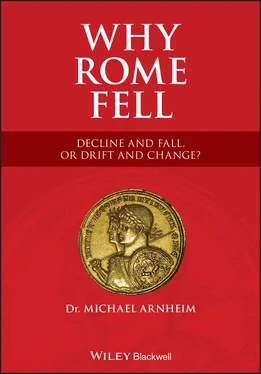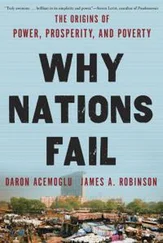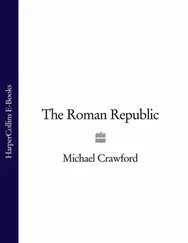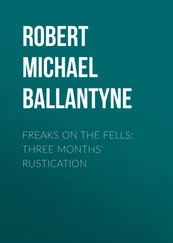Michael Arnheim - Why Rome Fell
Здесь есть возможность читать онлайн «Michael Arnheim - Why Rome Fell» — ознакомительный отрывок электронной книги совершенно бесплатно, а после прочтения отрывка купить полную версию. В некоторых случаях можно слушать аудио, скачать через торрент в формате fb2 и присутствует краткое содержание. Жанр: unrecognised, на английском языке. Описание произведения, (предисловие) а так же отзывы посетителей доступны на портале библиотеки ЛибКат.
- Название:Why Rome Fell
- Автор:
- Жанр:
- Год:неизвестен
- ISBN:нет данных
- Рейтинг книги:3 / 5. Голосов: 1
-
Избранное:Добавить в избранное
- Отзывы:
-
Ваша оценка:
- 60
- 1
- 2
- 3
- 4
- 5
Why Rome Fell: краткое содержание, описание и аннотация
Предлагаем к чтению аннотацию, описание, краткое содержание или предисловие (зависит от того, что написал сам автор книги «Why Rome Fell»). Если вы не нашли необходимую информацию о книге — напишите в комментариях, мы постараемся отыскать её.
Why Rome Fell: Decline and Fall, or Drift and Change?
Why Rome Fell
Why Rome Fell
Why Rome Fell — читать онлайн ознакомительный отрывок
Ниже представлен текст книги, разбитый по страницам. Система сохранения места последней прочитанной страницы, позволяет с удобством читать онлайн бесплатно книгу «Why Rome Fell», без необходимости каждый раз заново искать на чём Вы остановились. Поставьте закладку, и сможете в любой момент перейти на страницу, на которой закончили чтение.
Интервал:
Закладка:
Brunt’s idea that patronage relations during the Republic were “…fragile, peripheral, short-lived, and did not count for very much” may possibly be correct as far as the turbulent late Republic was concerned but less likely for the middle Republic. (Brunt 1988.) There is evidence of patronage going all the way back to the Menaechmi of Plautus (c. 254–184 BCE), which indicates that rich men liked to be the patrons of as many clients as possible.
I agree with Professor John North’s characterization of the Brunt view as one of “sweeping negativity.” Brunt’s position was largely an argument from silence, based on the fact that “…clients are much less conspicuous in the sources” than we would expect if patronage was as important as was traditionally believed. North’s comment is apt: “It is quite possible that the basic relationships of society, so familiar to contemporaries, should be assumed and rarely referred to in contemporary texts”. (North 1989, p. 155.) But in fact, as Garnsey admits and as Brunt’s own footnotes show, the sources are by no means silent on patronage.
Polybius Was Right
Up to now we have been concerned with the tendency on the part of certain modern writers to dismiss large amounts of ancient evidence out of hand, with the danger of throwing the baby out with the bathwater. We now come to the opposite tendency, namely to accept too uncritically certain other ancient evidence. Some writers even have managed to combine both these opposite tendencies in the same book. One particularly disquieting tendency is to accept too readily any suggestion that the Roman Republic was democratic and even that the Principate of Augustus had democratic elements.
The evidence is quite clear, however, that the Roman Republic was an oligarchy or an aristocracy controlled by a senatorial elite, which, however, was open to novi homines . This is a modified version of the traditional view that can be traced back to Matthias Gelzer’s Nobilität der römischen Republik (1912). Until the 1980s there was a basic consensus, in the words of Professor Karl-Joachim Hölkeskamp, “that the social and political order of the libera res publica (free republic) had been aristocratic or even ‘oligarchic’, meaning that all institutions and positions of power were controlled by a particular kind of ruling class, which recruited not only magistrates, generals, priests, and senators from its ranks, but also the official representatives of the people, the tribuni plebis .” (Hölkeskamp 2010, p. 86.) This picture emerged largely from prosopographical research. Since Gelzer’s classic study, the existence of a “…complex system of patron-client relations” underpinning the political structure of the Republic had “…been generally accepted without further discussion.” (Ibid.)
This consensus was broken by Fergus Millar, who, following Peter Brunt, not only poured scorn on the whole idea of the significance of patronage ( clientela ) but even “flatly denies the existence of the nobility or of any homogeneous patrician-plebeian political elite in general; for him, to put it in a nutshell, neither an aristocracy nor an oligarchy ever existed in Republican Rome.” (Hölkeskamp, 2010, p. 108.) Instead, unduly impressed by the fact that elections and legislation were decided by popular assemblies, Millar even went so far as to refer to the “direct democracy” of the Republic:
In the light of recent work, it is time to abandon the once established presuppositions of a hereditary ‘nobility’, of aristocratic factions, and of an all-embracing network of dependence and clientship. We might then be able to see the public life of the classical Republic in a rather different light: as an arena in which those who sought and held office competed before the crowd…. It was this crowd which, however imperfectly, symbolized and represented the sovereignty of the Roman people. (Millar 2002, p. 141 f.)
And again: “Using ‘democracy’ in a strictly neutral sense, it is undeniable that the constitution of the Roman Republic was that of a direct democracy” (p. 165). This appears to relate to the period around 150 BCE. That Millar was not referring only to the legal or constitutional position but also to political realities on the ground is clear from the longer passage quoted above, and in addition from the writings of Millar’s staunch defender, T.P. Wiseman: “Fergus Millar forcefully insisted on the centrality of the People’s role in the political life of the republic.” (Wiseman, loc 76. referring to Millar 2002a, pp. 109–42.)
The first question to ask is what Polybius actually said . Then, whether he should be believed. And, if not, what was the true position? The response to these questions is as follows :
Polybius did not say that the Roman Republic was a democracy;
His reference to democracy in this connection has been misconstrued;
What Polybius actually said was that the Roman Republic had a “mixed” form of government, combining monarchy, aristocracy, and democracy;
In reaching this conclusion, Polybius was unduly influenced by the tradition of constitutional classification by a long line of Greek writers culminating in Aristotle; and
The true position is that the Roman Republic was an oligarchy, meaning rule by an elite minority or an aristocracy, namely a hereditary oligarchy, which, however, was not closed to novi homines.
What Polybius Actually Said
Millar, claiming to be following the ancient historian Polybius (c. 200–c.118 BCE), maintained that a good deal of sovereignty was exercised by the Roman people. Here is what Polybius actually said: ὥστε πάλιν ἐκ τούτων εἰκότως ἄν τιν᾽ εἰπεῖν ὅτι μεγίστην ὁ δῆμος ἔχει μερίδα καὶ δημοκρατικόν ἐστι τὸ πολίτευμα. (“And so one might plausibly say that the people’s share in the government is the greatest, and that the constitution is a democratic one.”) (Polyb. 6.14.)
The key word here is εἰκότως ( eikotos) , meaning “in all likelihood, reasonably,” which comes from the verb eoike (it seems). The point Polybius is making is not that the constitution was democratic but that, if one looked at the people’s share in isolation, it might seem that their share was the greatest. Moreover, this passage is sandwiched between two other passages indicating that the Roman constitution was not a democracy but a mixed constitution.
It has to be remembered that Polybius was a Greek who had come to Rome as a hostage but stayed on and hobnobbed with some leading senators. His analysis of the Roman Republican constitution belongs to a well-known Greek genre going back to Plato and Aristotle and earlier writers. He classified the Roman constitution as mixed: a combination of monarchy, aristocracy, and democracy. The two consuls he identified as the monarchical element, which of course is arrant nonsense as the whole idea of the consulate was to prevent power from being concentrated in the hands of a single person. Polybius identified the Senate as the aristocratic element, which was fair enough, considering not only its elite composition but also the fact that it controlled all the finances, had jurisdiction over all serious crimes, and was in control of foreign affairs. “After this,” writes Polybius, “we are naturally inclined to ask what part in the constitution is left for the people.” As the people, through the popular assemblies, elected all office-holders, voted on laws, and decided questions of war and peace, he concludes with the sentence as quoted in Greek above. But he adds that, while the Senate must respect the people’s wishes, “…the people must be submissive to the senate and respect its members both in public and in private.” (Polybius 6.17.) So, it would be quite wrong to read Polybius as saying that Rome was a democracy. It is quite clear that he classified it as having a mixed constitution or government.
Читать дальшеИнтервал:
Закладка:
Похожие книги на «Why Rome Fell»
Представляем Вашему вниманию похожие книги на «Why Rome Fell» списком для выбора. Мы отобрали схожую по названию и смыслу литературу в надежде предоставить читателям больше вариантов отыскать новые, интересные, ещё непрочитанные произведения.
Обсуждение, отзывы о книге «Why Rome Fell» и просто собственные мнения читателей. Оставьте ваши комментарии, напишите, что Вы думаете о произведении, его смысле или главных героях. Укажите что конкретно понравилось, а что нет, и почему Вы так считаете.












